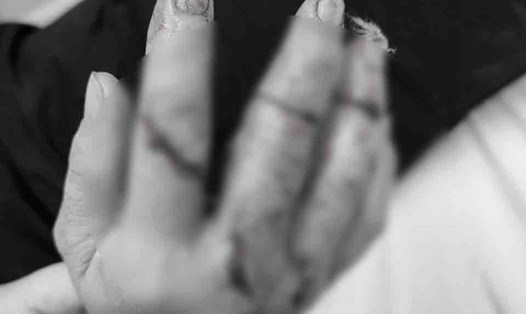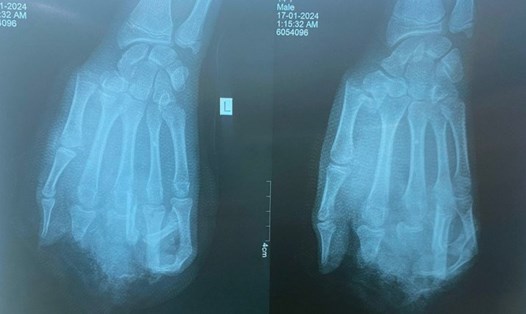The patient was admitted to the Department of Orthopedics and Spinal Neurology (Central Hospital for Tropical Diseases) when the injury had spread throughout the hand, with partial skin necrosis and the little finger black and necrotic, requiring amputation.
The patient was diagnosed with hand cellulitis caused by Staphylococcus aureus infection. This is a dangerous bacteria commonly found in skin infections.
The patient was treated with a combination of surgery to clear the infection and control blood sugar. Doctors from the Department of Orthopedics and Spinal Neurology performed necrosis debridement surgery twice to remove dead tissue, and at the same time installed a negative pressure suction system to promote tissue regeneration. When the wound was clean and the granulation tissue was good, the doctor performed a flap to cover the defect and patch the patient's thick skin. The treatment process lasted more than a month, including surgery, post-operative care, and physical therapy to restore finger motor function.
According to MSc. Dr. Hoang Manh Ha, Head of the Department of Orthopedics and Spinal Neurology: The patient had a history of type 2 diabetes, intellectual disability, poor blood sugar control and no regular check-ups. Therefore, on the basis of diabetes, the infection spread rapidly. Treatment of cellulitis in this case is very complicated and requires close coordination between specialists.
Even with successful treatment, patients still face many complications and long-term consequences.
Dr. Hoang Manh Ha added: “The patient’s ability to move his hand is reduced, he cannot grasp or stretch his fingers. Sensation in his hand is also reduced, especially in the grafted skin area. These complications not only affect daily activities but also leave heavy psychological pressure on the patient.”
Doctors advise that cellulitis is a dangerous disease, especially for patients with underlying diseases such as diabetes. To prevent it, patients need to control underlying diseases well, have regular health check-ups and pay special attention to skin lesions. If you detect signs such as swelling, pain or widespread inflammation, you need to go to a medical facility immediately for timely diagnosis and treatment.





